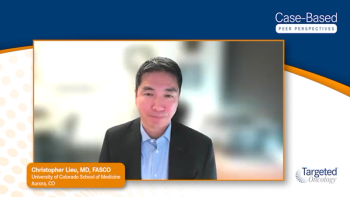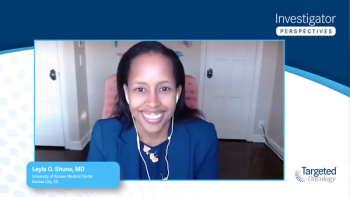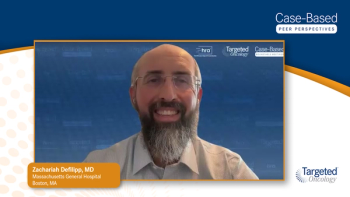
Clinical Impact of PROUD-PV/CONTINUATION-PV Trials on Polycythemia Vera Treatment Decision-Making
Panelists discuss how interferon therapy for polycythemia vera requires patient education about its unique characteristics, including the need for long-term treatment (with benefits most apparent at 36 months rather than 12 months), potential adverse effects (mild flu-like symptoms, depression, injection site reactions, and autoimmune issues), and evolving dosing strategies that may improve tolerability, while emphasizing that with FDA approval of ropeginterferon, insurance hurdles have decreased and molecular response monitoring may eventually guide treatment optimization.
Episodes in this series

Summary of Ropeginterferon in Polycythemia Vera Management
Clinical Trial Data
- PROUD-PV/CONTINUATION-PV studies:
- Initially showed comparable complete hematologic response at 12 months between ropeginterferon and hydroxyurea
- 36-month data revealed significantly better outcomes with ropeginterferon
- Also demonstrated improved event-free survival compared with control arm
Optimal Use Considerations
- Patient selection and expectations:
- Not a quick solution; benefits emerge over extended treatment (1-3 years)
- Most appropriate for earlier disease stage
- Requires patient commitment to long-term therapy
- Dosing approaches:
- Emerging alternative strategies: starting at lower dose (100 μg) without rapid escalation may improve tolerability
- Traditional approach (per package insert): dose escalation to maximal tolerated dose
- Ongoing trials (SURPASS, ECLIPSE-PV, EXCEED-ET) exploring rapid escalation to maximum dose
Monitoring Recommendations
- Key safety considerations:
- Psychiatric effects: Monitor for depression/anxiety (though rates were only ~5% in PROUD-PV)
- Autoimmune conditions: Follow thyroid function tests
- Hepatotoxicity: Regular liver function monitoring
- Injection site reactions: Skin examination
- Flu-like symptoms: Educate patients that these typically occur 24 hours post injection and often diminish over time
- Clinical pearls:
- Preexisting autoimmune conditions are not absolute contraindications, but require closer monitoring
- Recommended follow-up every 8 to 12 weeks
- FDA approval has reduced insurance barriers to access
- JAK2 allele burden monitoring not currently recommended for routine clinical practice
- Position patient education as informative rather than cautionary to avoid nocebo effect
The panel emphasized that increasing provider comfort with interferon dosing strategies, combined with the FDA approval of ropeginterferon, may expand appropriate utilization of this therapy with potentially disease-modifying benefits.




















